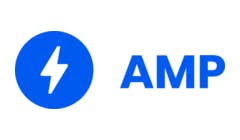AMP Advisory Committee 2020 election
AMP’s development is stewarded by an open governance system of multiple working groups and two committees: the Technical Steering Committee (TSC), which is responsible for the project’s direction and day-to-day operations, and the Advisory Committee (AC), which provide valuable perspective, stakeholder input, and advice to the TSC and to working groups.

AMP Advisory Committee 2020 election
The following blog was originally posted on APM.dev. AMP is a growth project at the OpenJS Foundation. It was posted by Tobie Langel and Jory Burson on behalf of the AMP AC.
AMP’s development is stewarded by an open governance system of multiple working groups and two committees: the Technical Steering Committee (TSC), which is responsible for the project’s direction and day-to-day operations, and the Advisory Committee (AC), which provide valuable perspective, stakeholder input, and advice to the TSC and to working groups.
An important goal of this governance structure is to ensure that the voices of those who do not contribute code to AMP, but are nonetheless impacted by it, get heard. This responsibility is shared across all contributors and governing bodies but falls particularly on the shoulders of the AC, which has a duty to ensure its membership is as representative and diverse as possible.
The AC is opening its call for nominations. We hope you will consider joining it. The AC is looking for candidates who will bring new perspectives and insight from AMP’s various constituencies: the industries adopting AMP to deliver content to their users, such as the publishing industry and e-commerce; the tech vendors whose solutions help power these industries, such as content delivery networks, web agencies, tooling providers, or payment providers; the industry experts focusing on topics such as accessibility, internationalization, performance, or standardization; and end-users and their representatives, such as consumer advocates. This list is by no means exhaustive. All candidates are welcomed and encouraged to apply, but preference will be given to those who bring an underrepresented perspective to the AC and help broaden its horizon.
For a better understanding of the AC’s work and membership responsibilities, read the member expectations document, working mode document, and minutes of past meetings. Also have a look at its GitHub repository and in particular its project board.
The AC is fully distributed—it spans over nine time zones—working asynchronously over email and GitHub issues (although its work isn’t technical in nature). It meets every other week over video conference, and ordinarily every six months face to face (note that there are no face-to-face meetings planned for the remainder of 2020 or the first half of 2021 at this time).
If you have questions, feel free to reach out to Tobie Langel or Jory Burson, AC facilitators.
If you’re interested in joining the AC, please apply.
We will be collecting new applications until Friday, October 2 at 23:59 AoE (Anywhere on Earth). The AC will elect its new members through a consensus based process and will announce the results on Monday, October 20.